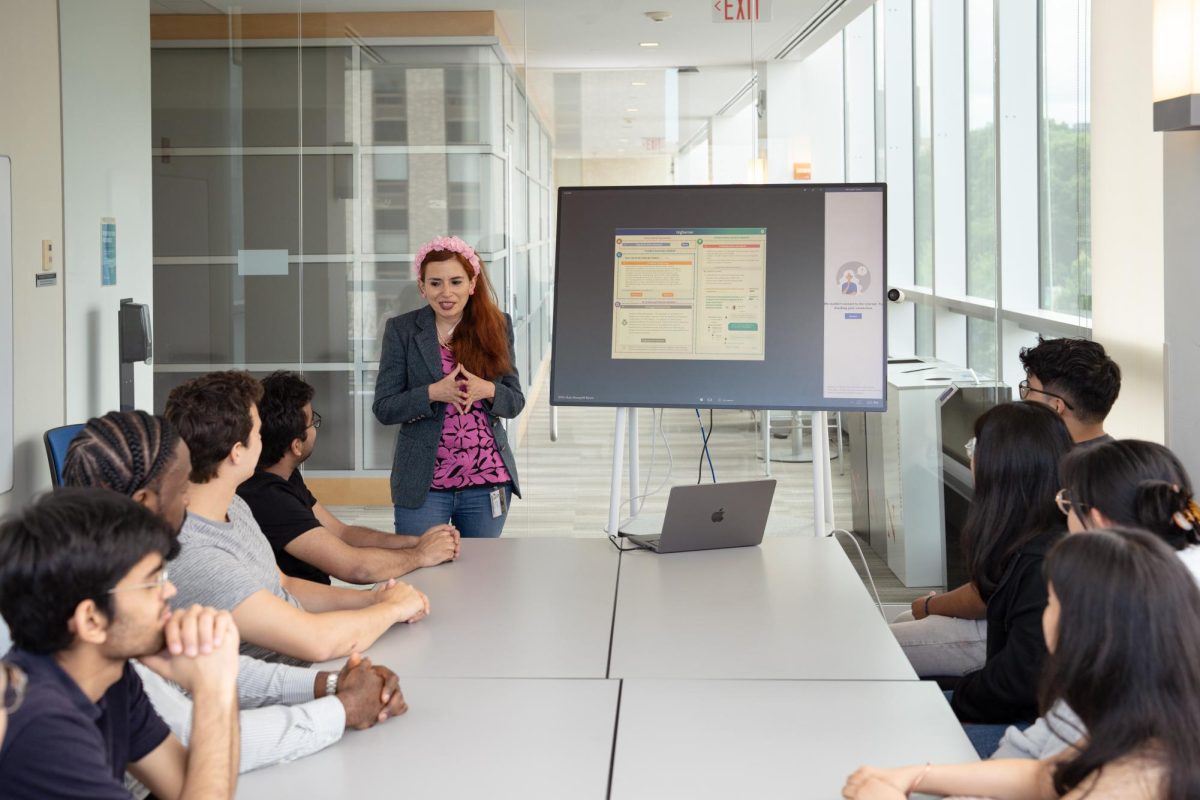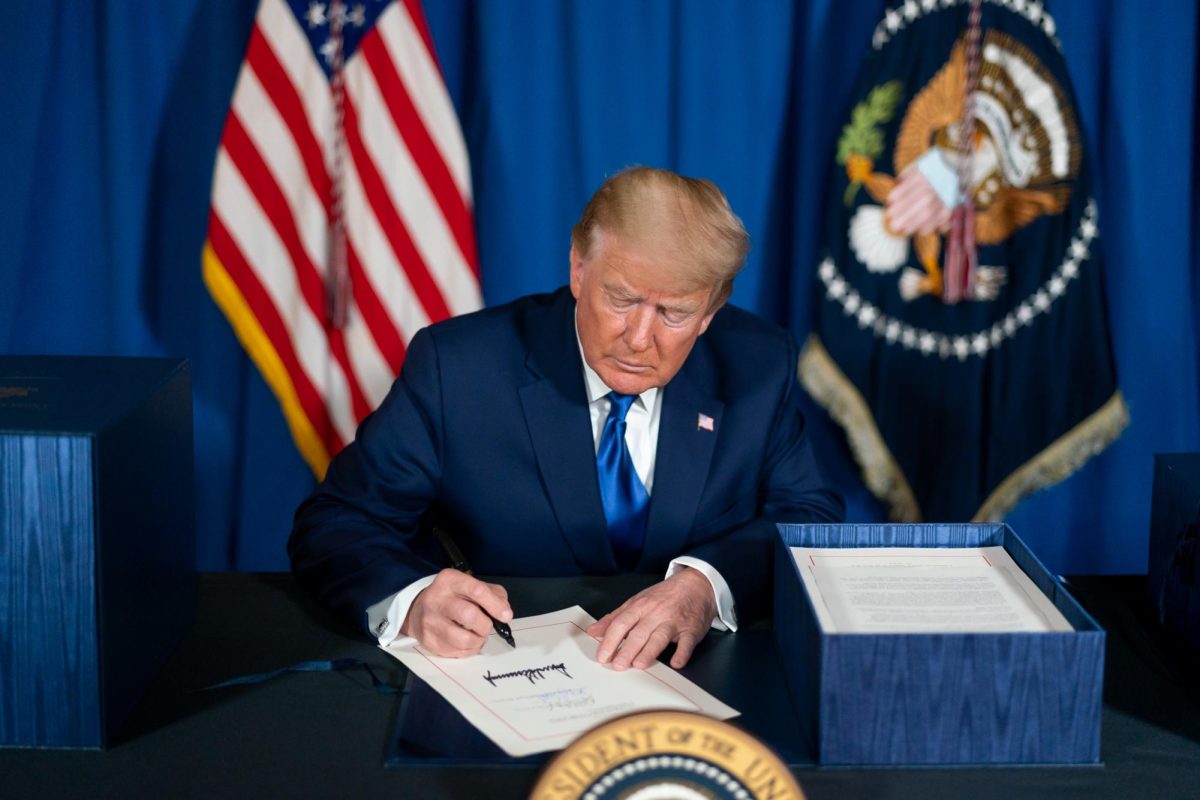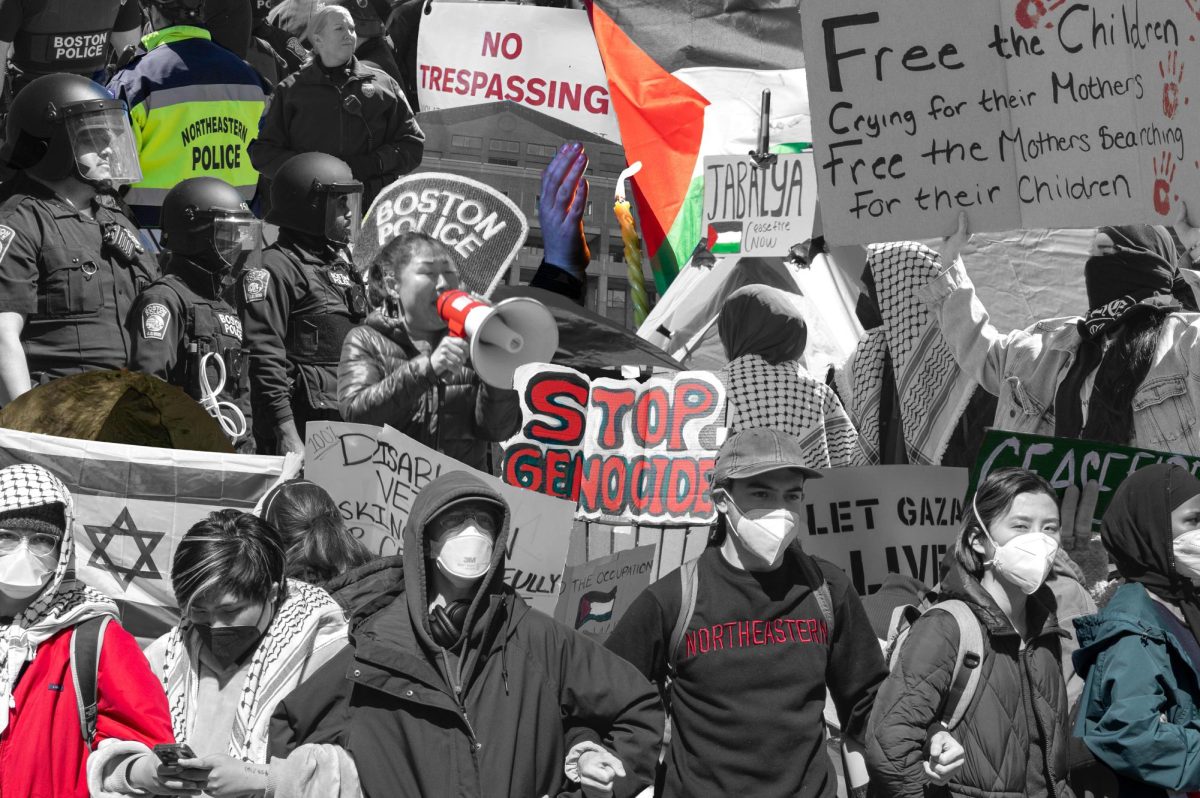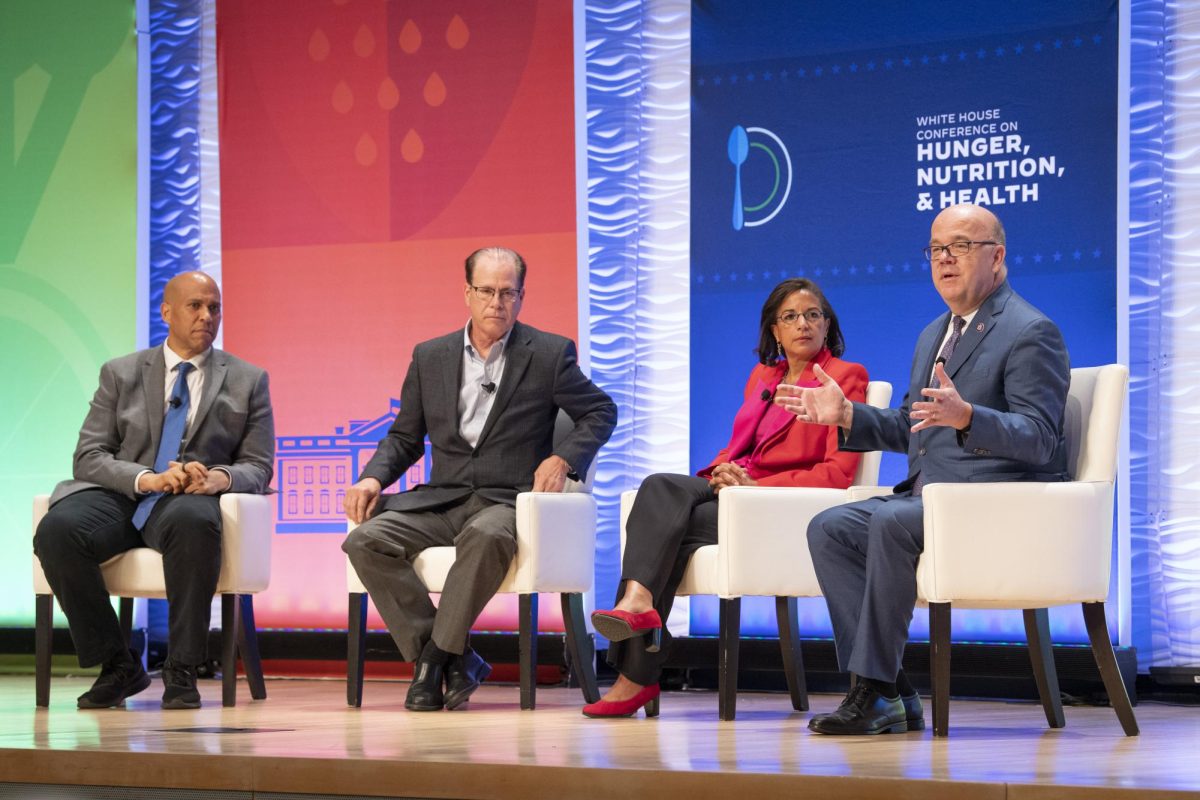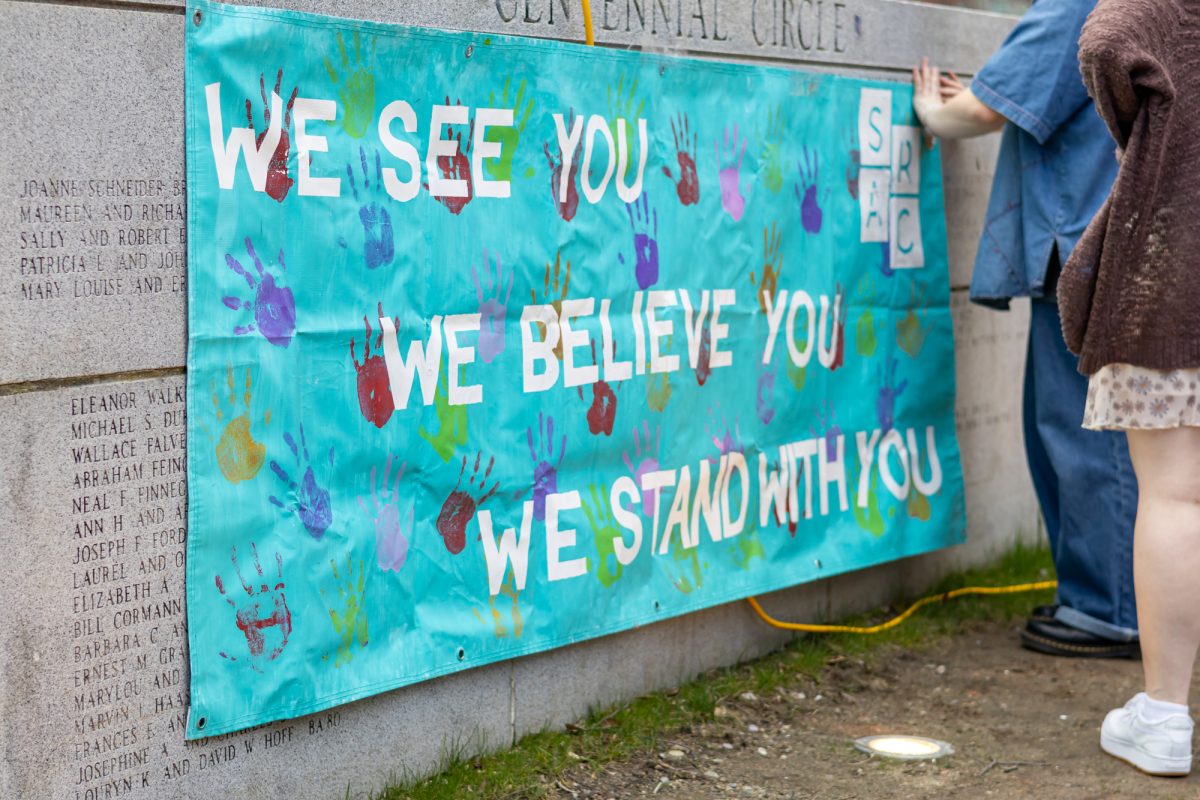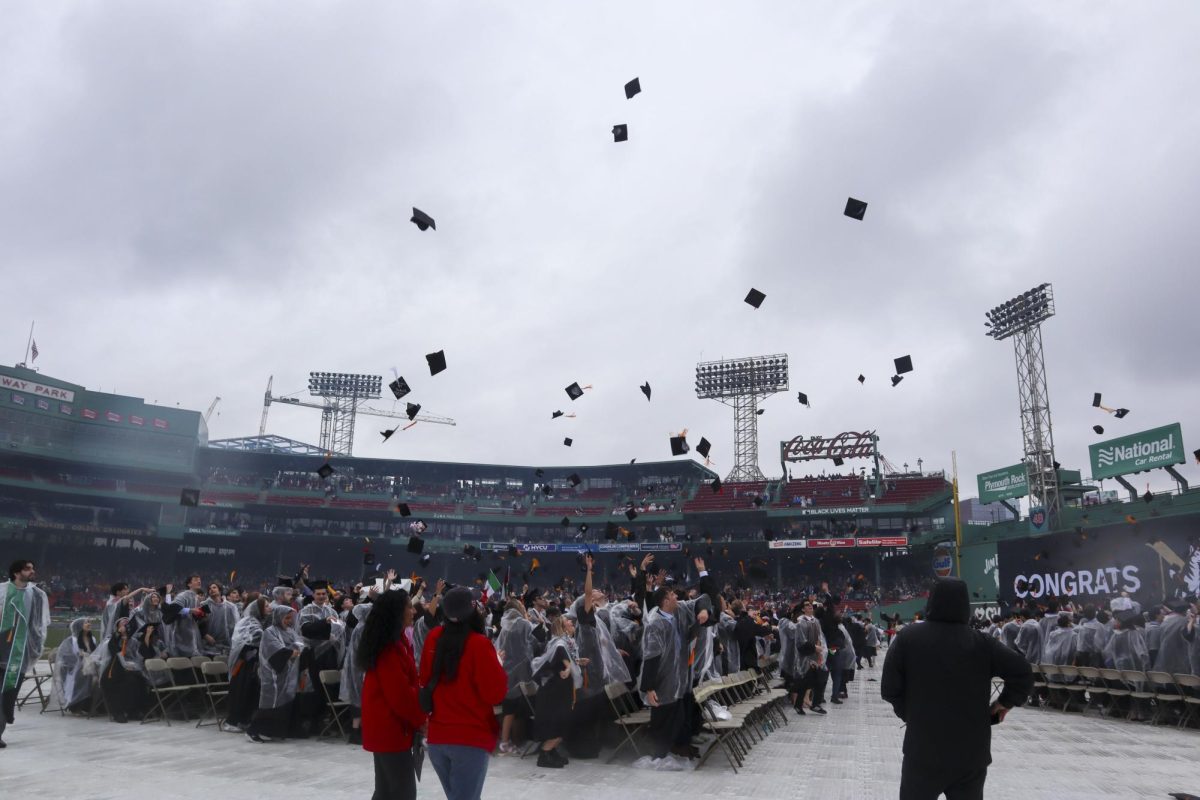Not even a hug from Jerry Springer could console Heidi Buchanan’s disappointment when, at 2:15 a.m. Monday morning, Bill failed to show.
Visibly tired, Buchanan recounts her trip to the Rock the Vote event at Avalon, where former President Bill Clinton was scheduled to appear. After waiting for hours in the front row chanting “We want Bill,” an announcement was made – he wasn’t coming.
“I was so mad,” the 21-year-old political science major says. “But [earlier in the night] I got up on stage, and within seconds I was right in front of Howard Dean, and I got a hug from Jerry Springer on the way out. He’s a very good Democrat, you know.”
As she walks to the Back Bay Hilton for her early-morning breakfast as an alternate Vermont delegate to the Democratic National Convention, she yawns, stretches and talks about her long day ahead.
“Seven-thirty is not my favorite time of the day,” she says.
When she enters the room filled with delegates nearly twice her age, however; last night’s excursions are quickly forgotten. She offers a smile, handshake or hug to everyone she meets – they know her by name, if not, always by face.
Buchanan listens attentively at the table as the delegates and Vermont Sen. Patrick Leahy discuss plans for the first night of the convention that evening. True to Bostonian form, she offers tips for navigating the T to those unfamiliar with the routes.
“Take the Orange Line,” she says, “the Green Line is terrible.”
Buchanan explains the delegates’ fondness for each other and their home state.
“There’s a lot of pride, and that’s kind of what I like about it,” she says. “Vermonters pride themselves on where we come from.”
After serving as the president of the Northeastern chapter of the College Democrats of America organization this past year, Buchanan, along with 30 other people from Vermont, decided to run for a state delegate position representing Sen. John Kerry. She received the third-highest amount of votes, earning her the role of an alternate.
As plates are being filled with hash browns and eggs at Buchanan’s first official delegate meeting, actor John Cusack suddenly walks in the room, and she gasps.
“Oh my God! That’s awesome,” she says.
After following him down a hallway and requesting an autograph, she leaves the Hilton and heads back toward campus, not attempting to hide her disappointment that Vermont is discussing giving its vote to Howard Dean to show support for their former governor, even though he has already dropped out of the race.
“I can see why [the delegates are considering it], because he’s from our state,” she says. “It’s the whole Vermont pride thing … I feel like we should be throwing our support to Kerry. Why throw our support away?”
She brushes off her frustration when discussing the CDA National Convention she will be attending that afternoon at the Hynes Convention Center. The event will host several hundred other college delegates from around the U.S.
“Being in the midst of 1,000 to 2,000 people that you know care about the same issues as you and you know are routing for the same person as you is exhilarating,” she says while dodging suit-clad tourists on Huntington Avenue. “It’s like you automatically have bonds and conversation starters with these people.”
At 1:45 p.m., Buchanan has a new outfit and a renewed sense of energy from an afternoon name. The CDA convention hosts a multitude of students from different parts of the country, revealed by the variety of accents that can be heard among the many conversations.
Buchanan does not hesitate to mingle with her peers, chatting with delegates from Connecticut, Wisconsin and Vermont, among others.
“I’m trying to meet someone from every state,” she says, and begins to jot down a list of those already achieved.
She is also friendly with local politician Michael Dukakis, who ran for President on the democratic ticket in 1988 but lost to George H.W. Bush, and who now teaches one of Buchanan’s classes and acts as advisor to her student organization. She gives him a hug, talks with him for a bit and proceeds to take her seat as the gavel falls and the convention officially begins.
Dukakis is one of the first to speak, and Buchanan jots down notes and pays close attention.
“Let me start with an apology,” Dukakis says, “because if I had beaten George H.W. Bush in ’88, we would have never heard of his kid.”
Buchanan laughs and claps with obvious admiration for her professor. As he speaks about the importance of local canvassing and dubs this election “the most important of his lifetime,” he receives several standing ovations – with Buchanan one of the very first out of her seat.
As the convention continues with several more speakers and smaller group discussions, Buchanan offers suggestions and advice to other chapters just getting started on their campuses. It is clear as she talks that despite her political ambitions, there is nothing stiff or formal about her.
When hip-hop group The Poets take the stage to close the convention with such politically-driven pieces as “Columbine Versus the Ghetto,” Buchanan stands and claps along. When the meeting is adjourned, she rushes to the hallway filled with signs, stickers and flyers supporting Kerry. She fills her arms with all her small frame can carry, and heads home to prepare for the activities at the FleetCenter in a few hours.
On the way back to campus, Buchanan displays her optimism for the election in November, using such phrases as “when John Kerry wins,” instead of “if John Kerry wins.” She also hints that although she already has much on her plate for the future, she may not be finished attempting to make a difference.
“I want [the CDA at Northeastern] to be like a vacuum in the fall. Just wait,” she says. “And I really wish I had ran for a national position. You know what, maybe next year I will.”


